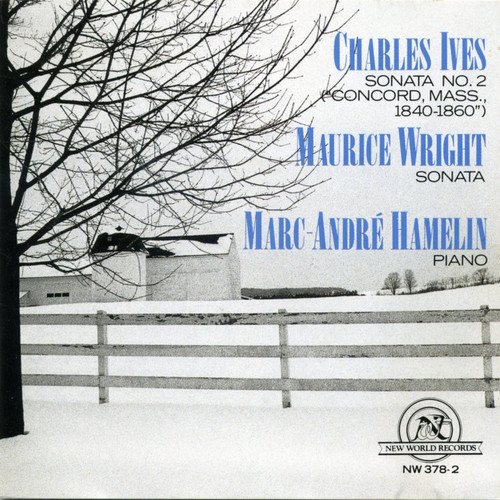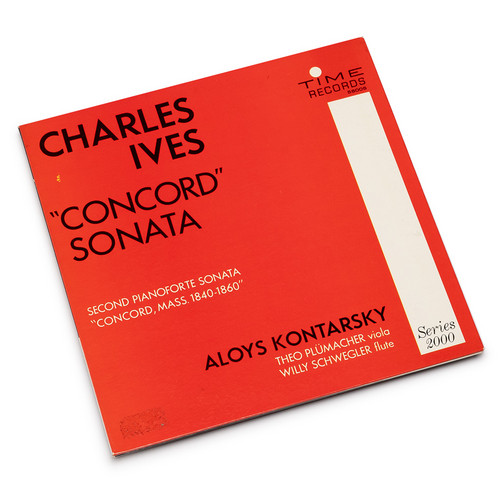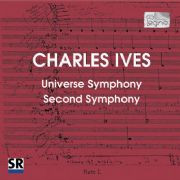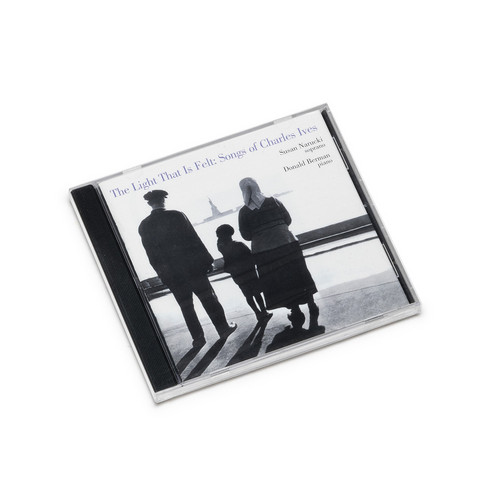Charles Edward Ives
Sonata No. 2 ( "Concord, Mass., 1840-1860") - Sonata
“This is not a nice sonata for a nice piano player,” wrote Charles Ives about his most famous work, “but something the writer had long been thinking about.”
All four movements were programmatically conceived around figures in the Transcendentalist movement (c. 1936-1860) in Concord, Massachusetts. The “Emerson” movement had begun as a piano concerto, the soloist representing Ralph Waldo Emerson, and the orchestra, the masses listen to him; “Hawthorne” was conceived for “a piano or a dozen pianos…
"Concord" Sonata (LP)
First 1962 edition on Time Records' important Series 2000 (Cage, Stockhausen, Kagel, Berio, Wolff, etc.) of one of the most influential compositions on the American avant-garde by maverick composer Charles Ives, performed by Stockhausen's pianist of choice Aloys Kontarsky.
Another Songbook
Conductor Sebastian Gottschick presents an additional selection of songs and chamber music works from composer Charles Edward Ives that reflect this broad range, 20 mostly brief and innovative works composed between 1898 and 1921, blurring the boundaries between genres through unusual motifs, themes, gestures and phrases that appear in new vocal and/or instrumental contexts.
Symphony No. 3
Charles Ives (1874-1954) earned his living by selling insurance policies to his contemporaries. Besides, he took a great interest in literature, philosophy and, first and foremost, music. And what came of it? The most original modernist music one could imagine. Ives's Third Symphony was inspired by his memory of camp meetings, the Christian "evangelistic gatherings" common in his youth. However bizarre these meetings may appear to us, they were a familiar feature of rural America especially duri…
Universe Symphony / Second Symphony
The most ambitious and grandest of his projects would of course never see completion. For over forty years, Ives continued to supplement the material for his Universe Symphony, adding both notes and details. At some point, the scenario he envisaged got somewhat out of hand, Henry Cowell reported. “Several orchestras and large parties of singers, male and female, were to be placed in valleys, on mountain slopes and on summits,” and “6 to 10 different orchestras on several mountain tops, each movi…
The Light That Is Felt - Songs of Charles Ives
Charles Ives composed nearly 200 songs throughout his life. Wiley Hitchcock, in the thorough introduction to his 2004 critical edition 129 Songs, described the Ives song canon as the contents of a kind of scrapbook or commonplace book or chapbook, or even a desk drawer. Into such a receptacle Ives tossed irregularly, if not casually, his reactions Ñin the form of songsÑto memories, personalities, places, events, discoveries, ideas, visions, and fantasies in his life.' Whether popular tale or per…





